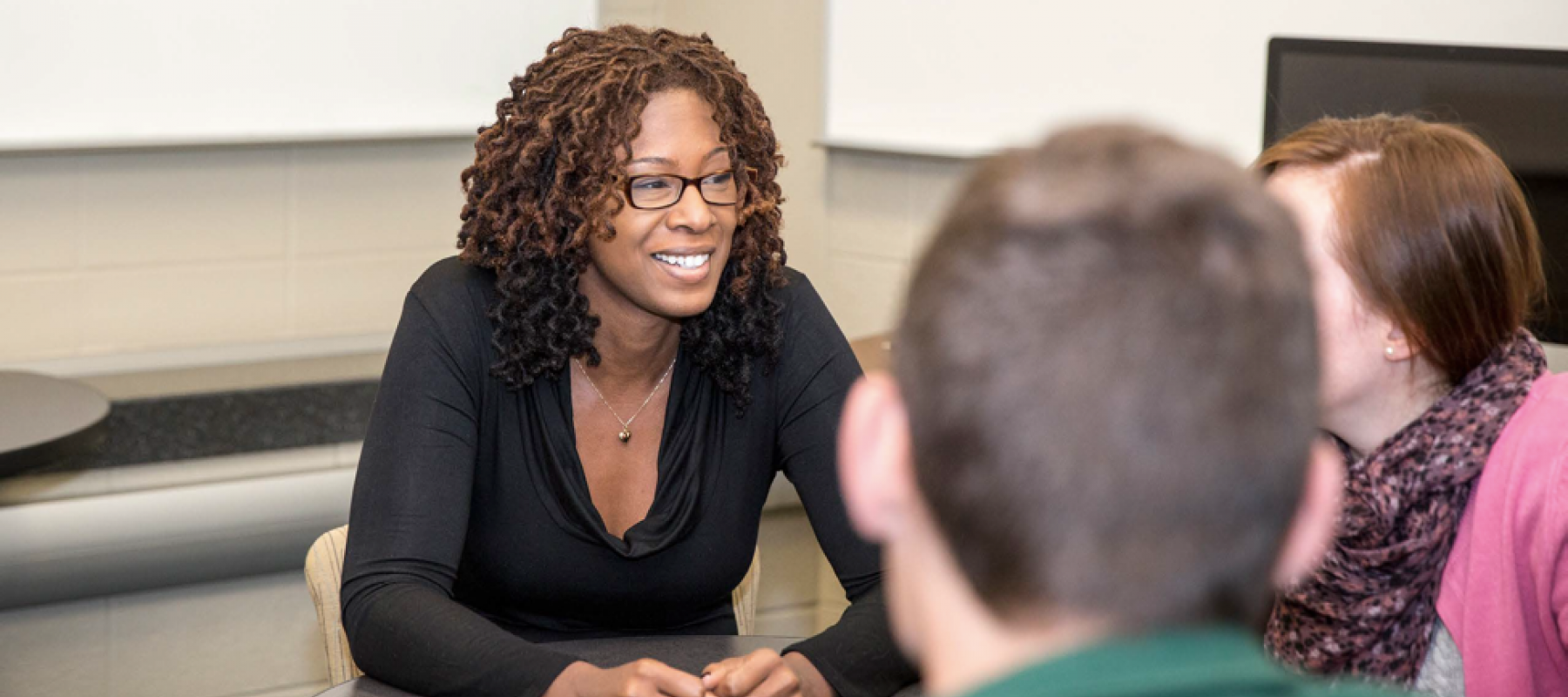
Using Cogenerative Dialogues in Graduate Education
In the CHAE Report (Fall 2015), Dr. Jones discusses the use and benefits of cogenerative dialogues in graduate education.
Written by Ginny Jones, Assistant professor
Assistant professor Ginny M. Jones employs cogenerative dialogues (cogen) in her graduate teaching. Cogen involves small group discussions in which students and faculty reflect on the learning processes and make appropriate modifications during the semester, thus “co-generating” the classroom experience (Bondi, 2011; Jones & Linder, 2016). Jones’s first experience with cogenerative dialogues (cogen) was as a doctoral student, when she co-taught a master’s-level course with Professor Chris Linder.
Jones and Linder designed and facilitated a course that used cogen as a means to guide students into taking ownership over their learning. As a part of that course, students were required to read an article describing the use of cogen in graduate education (Bondi, 2013), participate in two one-hour sessions of cogen outside of class time, and write a reflection paper about their cogen experiences. Students were randomly assigned to groups of four. Each cogen session started with one of the instructors asking a broad question such as, “What did you notice in class this week?” and progressed from there.
Jones believes cogen is a useful pedagogical tool for illuminating issues of power in the classroom. In particular, she believes it to be extremely helpful in naming power dynamics that occur within and outside of the classroom, such as programmatic influences and cohort dynamics. She notes that:
"Although the focus of cogen was on our particular course, the experience engaging it highlighted for me the particular usefulness of using this pedagogical practice in cohort based student affairs programs. The unique structure of these programs, in which students take the bulk of their courses with one another throughout their degree program, lends itself to a greater understanding of how student insights in cogen transcend the specific class in which they engage it."
She continues to use cogen in her work at MSU and recently used it in the Introduction to Student Affairs course. In describing that experience, she says, “Not surprisingly, I am observing similar themes as those I observed previously, namely students’ expressions on the interplay of power and meaning-making and programmatic influences on their learning experience.”
What she has found is, through the process of cogen, students feel more comfortable offering ideas to improve the learning environment and articulating dynamics that hinder their learning. She asserts that cogen brings to light the external pressures students in cohort-based programs feel because of their peers, perception of faculty, and sense of competition. Cogen provides an avenue for students to connect and strategize with one another and the professor on how to alleviate the pressures of these dynamics. As Jones shared, “Instead of going unaddressed and growing increasingly troublesome, students and I are able to strategize ways to lessen their negative impact through the dialogues.”
References
Bondi, S. (2013). Using cogenerative dialogues to improve teaching and learning. About Campus, 18(3), 2-8. doi: 10.1002/abc.21117
Bondi, S. (2011). Complicity with the neocolonial project in education: A deconstruction of student affairs preparation practices. Unpublished dissertation. Retrieved from http://lib.dr.iastate.edu/cgi/viewcontent.cgi?article=1513&context=etd
Jones, G. M., & Linder, C. (2016). Navigating the use of cogenerative dialogues: Practical considerations for graduate faculty. International Journal of Teaching and Learning in Higher Education, 28(3), TBD.



